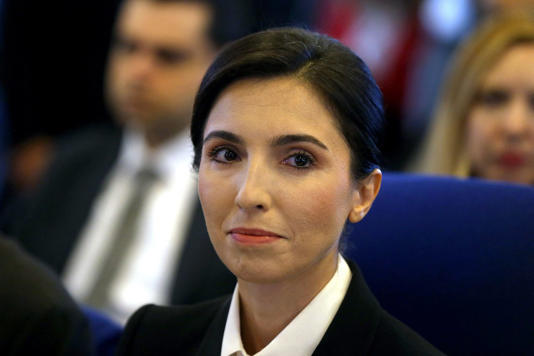ISTANBUL—Turkey’s central bank governor resigned late on Friday after less than a year in office, marking the latest turbulence in a major world economy that has suffered a series of economic crises in recent years.
Turkey has had five central bank governors in the past five years under the leadership of President Recep Tayyip Erdogan, who pressured the bank into cutting interest rates in 2021 despite the country’s high inflation rate, triggering a currency crisis.
Economic instability in Turkey—a member of the North Atlantic Treaty Organization and the Group of 20 nations, and a major trading partner for Europe—has been a matter of global concern in recent years. The weakening lira is among the factors driving Erdogan to seek an economic partnership with Russia and Gulf countries.
Erdogan appointed central bank governor Hafize Gaye Erkan, a former executive at Goldman Sachs and First Republic Bank in the U.S., in June of last year, following a difficult presidential election. She was the bank’s first female governor.
Erkan said in a tweet that she was asking Erdogan to excuse her from her duties due to a “character assassination campaign” against her, a reference to news reports about her, and to protect her family.
The Turkish central bank named as a successor Fatih Karahan, a former deputy central bank governor and former economist at the Federal Reserve Bank of New York, according to an official statement.
Erdogan didn’t immediately comment.
Erkan’s appointment, along with that of the finance minister, Mehmet Simsek, was intended to restore market confidence after years in which investors had scaled back their exposure to Turkish assets, in part due to Erdogan’s expanding control over economic management.
Erdogan has said that lower interest rates will eventually lead to lower inflation, the opposite of what economists believe.
Erkan’s resignation comes after weeks in which Turkish media accused her and her family of using the staff of the central bank for their personal matters. The news reports also alleged that her father had meddled in bank business.
Erkan rejected the accusations, calling them baseless.
Simsek, writing on X, said, “The new Governor, who is a well respected macroeconomist with an extraordinary depth of knowledge and expertise, will be appointed in line with my recommendation.” He didn’t identify the person.
Turkey’s economic troubles wiped some 90% off the value of the local currency over the last decade, pushing millions of ordinary Turkish citizens closer to poverty.
The crisis thinned Erdogan’s base of support, but he survived a close-fought election last year, sustaining a two-decade-long run during which he has become Turkey’s most powerful ruler in a century.
As central bank governor, Erkan oversaw a series of interest rate increases intended to tackle inflation, reversing her predecessor’s policy. The bank’s benchmark rate, the one-week repo rate, currently stands at 45%.
The program won praise from market analysts who urged the bank to tamp down on inflation. Some economists criticized the bank for not being aggressive enough.
Turkey still has one of the highest rates of inflation in the world at 64.8%.
“At this point, our economic program started to bear fruit,” Erkan said in the tweet announcing her resignation.
Write to Jared Malsin at jared.malsin@wsj.com
Source: The Wall Street Journal

